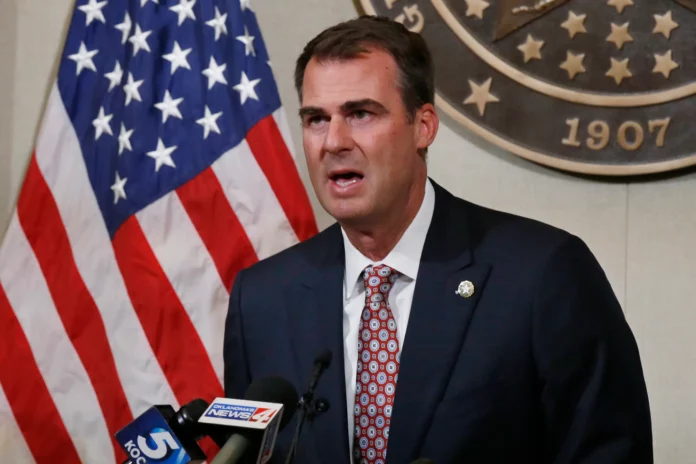There is growing outraged over Oklahoma Governor Kevin Stitt’s (R-OK) proposal to allow the state to dump hazardous waste, including mercury and cancer-causing PCBs, onto tribal lands. The Environmental Protection Agency (EPA) had set a Monday deadline for tribes to weigh in on the plan but did not provide any evidence that they had publicized or notified any of the Oklahoma tribes about this. This has only added fuel to an already heated debate; Native American and environmental groups have condemned Stitt’s request as violating common sense and one tribe said they had not even been contacted about it.
The controversy began when Stitt wrote a July 22 letter requesting regulatory control over environmental issues on virtually all tribal lands anywhere in the state. This letter was never made public but instead shared with one oil-industry group and posted online by them. Critics of this plan argue that it could potentially threaten public health and safety by dumping dangerous chemicals onto Native American land without proper oversight or disposal protocols in place. It could also damage sacred sites and other archaeological artifacts that are held dear by many Indigenous communities across Oklahoma.
Stitt has defended his plan, saying that it would help streamline environmental regulations across the state while still ensuring that tribal interests were protected. However, many organizations remain unconvinced that this is anything more than an attempt to weaken environmental protections and increase corporate profits at the expense of vulnerable communities. For example, some fear that allowing unregulated hazardous waste dumping could lead to severe contamination of groundwater sources used by local Native Americans for drinking water, resulting in serious health concerns down the line.
The EPA has yet to provide a response after their Monday deadline passed; however, other high-profile figures have come out against Stitt’s proposal. In addition to environmentalist groups, several prominent Democratic lawmakers have spoken out against it, calling it “unconscionable” and saying it would be “a travesty for indigenous peoples everywhere if these toxic chemicals were allowed on their lands without due process or respect for their sovereignty”.
This issue has shone a spotlight on both the history of environmental injustice directed toward Indigenous populations as well as how industry interests can clash with those of vulnerable communities around Oklahoma. Going forward, many will be watching closely what steps are taken next as stakeholders attempt to reach a resolution that protects both public health and Native American rights alike.



